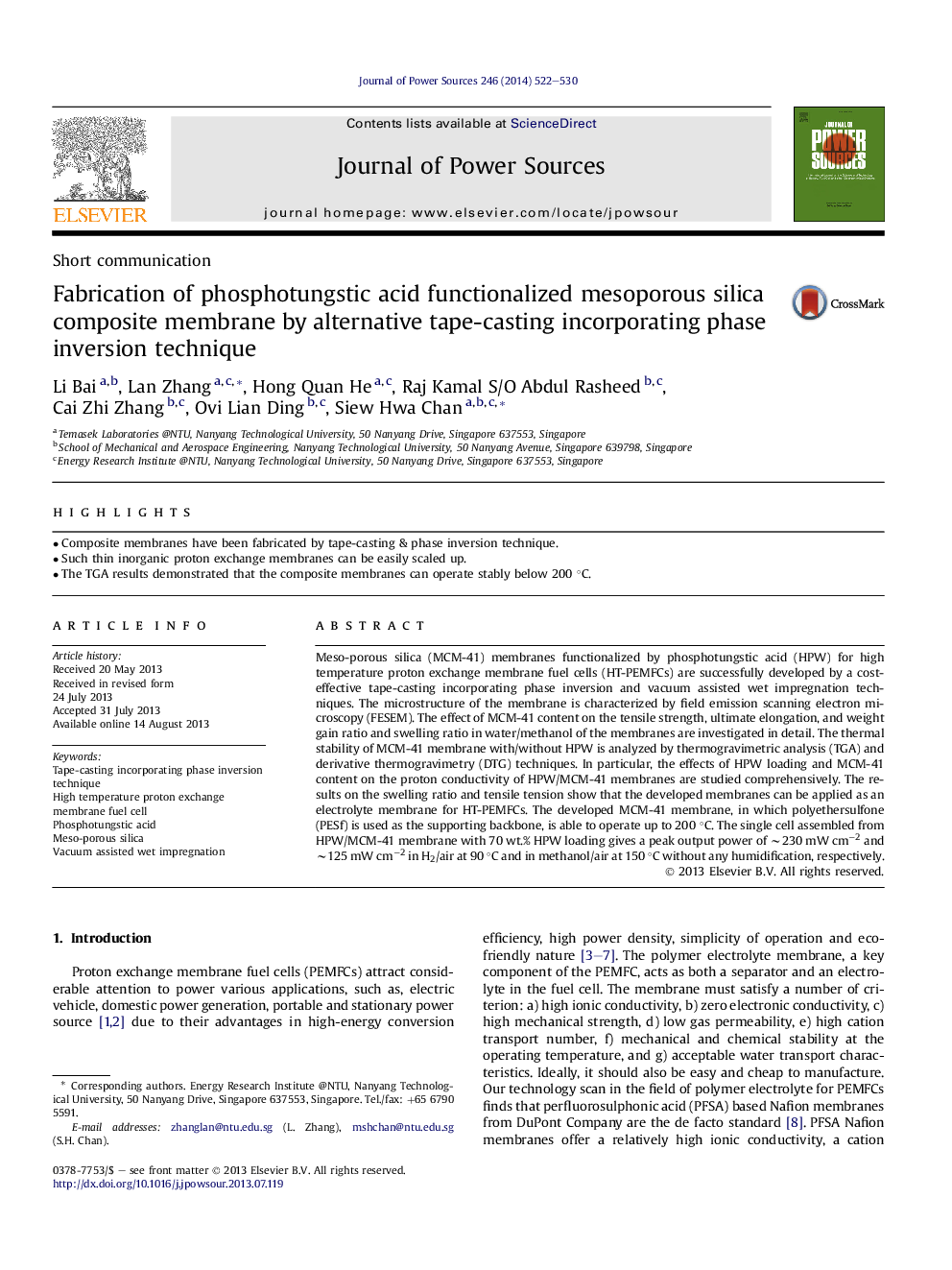| Article ID | Journal | Published Year | Pages | File Type |
|---|---|---|---|---|
| 1284256 | Journal of Power Sources | 2014 | 9 Pages |
•Composite membranes have been fabricated by tape-casting & phase inversion technique.•Such thin inorganic proton exchange membranes can be easily scaled up.•The TGA results demonstrated that the composite membranes can operate stably below 200 °C.
Meso-porous silica (MCM-41) membranes functionalized by phosphotungstic acid (HPW) for high temperature proton exchange membrane fuel cells (HT-PEMFCs) are successfully developed by a cost-effective tape-casting incorporating phase inversion and vacuum assisted wet impregnation techniques. The microstructure of the membrane is characterized by field emission scanning electron microscopy (FESEM). The effect of MCM-41 content on the tensile strength, ultimate elongation, and weight gain ratio and swelling ratio in water/methanol of the membranes are investigated in detail. The thermal stability of MCM-41 membrane with/without HPW is analyzed by thermogravimetric analysis (TGA) and derivative thermogravimetry (DTG) techniques. In particular, the effects of HPW loading and MCM-41 content on the proton conductivity of HPW/MCM-41 membranes are studied comprehensively. The results on the swelling ratio and tensile tension show that the developed membranes can be applied as an electrolyte membrane for HT-PEMFCs. The developed MCM-41 membrane, in which polyethersulfone (PESf) is used as the supporting backbone, is able to operate up to 200 °C. The single cell assembled from HPW/MCM-41 membrane with 70 wt.% HPW loading gives a peak output power of ∼230 mW cm−2 and ∼125 mW cm−2 in H2/air at 90 °C and in methanol/air at 150 °C without any humidification, respectively.
